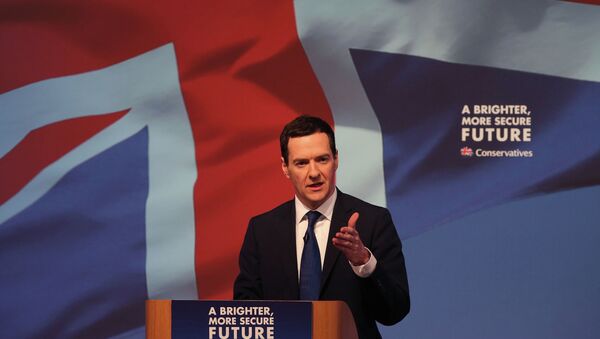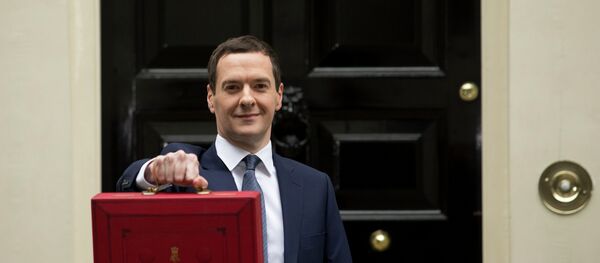The chancellor, who has been given the task of joining David Cameron in EU talks, told the Telegraph that Britain's relationship with Europe should return to the concept of a "single market of free trade" amid efforts to renegotiate the UK's membership terms.
When quizzed on whether he'd like the UK to return to a trade only relationship with the EU, Osborne said:
"I prefer to talk about it as a single market of free trade. It's free trade with the rules that enable the free trade to be a real success. That's the way I think we should think about it.
"Britain has other interests at a European level. For example, the climate change talks that are happening in Paris at the end of this year. The security work that we do with the French.
"But for Britain, I always felt that the central attraction of European Union membership was the economic one. And that's why it's so important to fix the economic aspects of our relationship if we are going to convince people and convince ourselves that it is right for Britain to remain in the EU."
On top of placing emphasis on the EU as an economic pact, Osborne also called for national governments to have a more influential role in shaping EU laws, saying that he believed the British public wanted "to be in Europe, not run by Europe."
We want a #Europe to work better for UK and all countries. One that makes it more competitive & dynamic, so it creates jobs for all
— George Osborne (@George_Osborne) July 27, 2015
Osborne's Hints at Loosening Britain's EU Ties
The chancellor's comments referring to the EU in primarily economic terms are sure to raise concern among some European leaders who have been pushing for further integration of the bloc as a whole — on both a social and political level.
Many of these efforts to reform the EU and the Eurozone have been brought to a head by the recent handling of the Greek debt crisis, with an increase in Eurosceptic sentiment starting to emerge in a number of countries such as France, Denmark and Austria.
The UK has long been a critic of some aspects of the bloc's social and political integration, clashing with Brussels over various issues such as EU migrants' access to welfare benefits.
As a result Prime Minister David Cameron has promised to give the British public the chance to vote in an In/Out referendum on EU membership by the end of 2017.
With the Eurozone nations seemingly accepting that they need greater economic integration to limit the effects of any future financial crises, Britain has identified that it may present the country with an opportunity to wriggle out of some existing agreements and re-set the country's EU membership terms.
Osborne says that striking a deal with Brussels is "absolutely do-able", however a number of European countries such as France and Poland have said that they will stand in the way of any British attempts to compromise the freedom of movement principle, underpinning the EU.
GDP growth 0.7%. Shows Britain motoring ahead with economy producing as much per head as ever before. We must stay on road we've set out on
— George Osborne (@George_Osborne) July 28, 2015
While Britain's ongoing attempts to renegotiate their terms in the EU continue, many Eurocrats will be concerned that any loosening of Britain's relationship with the bloc may set a dangerous precedent for other countries keen to break further away from Brussels, which will ultimately halt efforts to create an ever-closer Europe.




